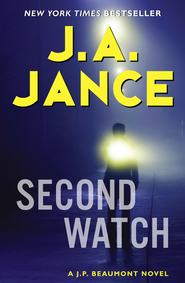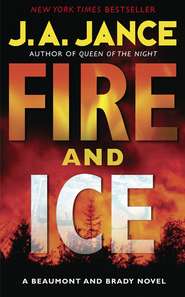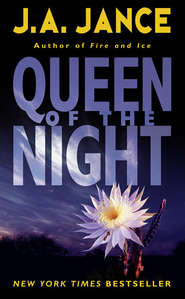По всем вопросам обращайтесь на: info@litportal.ru
(©) 2003-2024.
✖
Betrayal of Trust
Автор
Год написания книги
2019
Настройки чтения
Размер шрифта
Высота строк
Поля
It’s one thing to go to a crime scene after the fact. You view the body. You examine the surroundings. You look for clues. Although this wasn’t the first snuff film I had ever seen, this was certainly the youngest victim.
I’m not sure who first coined the expression “choking game” to apply to this monstrosity. Probably the same kind of language experts who invented the words “suicide by cop.” Right. That cleans it up. Makes what happens a little more presentable. But, as I said before, this was no game—a game would have ended before the girl was dead. This was straight-up strangulation and cold-blooded murder. The fact that the victim seemed to be a willing participant to begin with made it that much worse. And the fact that the killers had come prepared to film the event made it despicable.
But Mel and I needed to watch it, and we did so, several times, before leaving for the governor’s mansion forty-five minutes later. We watched the girl’s tentative last smile. We watched for anything about her clothing that might be distinctive. She seemed to be wearing a red sleeveless tank top of some kind. As she lurched to her feet, late in the assault, we caught a glimpse of what might have been lettering on the shirt—a logo of some kind—before the camera refocused on her face.
The scarf was blue and made of some kind of gauzy material—a scarf made for decoration rather than warmth. We studied the hands on the ends of the scarf. They were clearly not a pair. They were different skin tones, one whiter and one much darker, but not black. Hispanic, maybe? And one of them was definitely wearing a ring of some kind and the other one was wearing a watch. I knew that a careful computer-aided analysis of the frames containing the ring and the watch might provide important clues in identifying our suspects. First, though, we needed to identify our victim. In order to do that, we would need some pre-strangulation “still” photographs that we could send out to both the media and to other agencies.
I glanced at my own watch. “It’s time,” I said. “Let’s go see Old Mother Hubbard.”
Mel was right. The GPS knew exactly how to get to the gov-ernor’s mansion. Lush greenery and immaculately maintained lawns surrounded the stately three-story brick house. With dormers across the top and a spacious balcony opening off the second level, it might have been designed by some of the same people who built the mansions in the Highlands, an upscale development north of Seattle and home to some of the city’s most prosperous founding fathers.
As I recalled my Washington State history, the guy who should have been the first person to occupy the Olympia governor’s mansion ended up taking sick and dying elsewhere without ever living there. The mansion had fallen on hard times and had been renovated sometime back in the 1970s or ’80s. And I seemed to remember their having a recent problem with rats—the four-legged variety, although I imagine plenty of two-legged ones had prowled the premises on occasion, Josh Deeson being a current candidate for Chief Rat-in-Residence.
Mel is a relative newcomer to the Evergreen State. On our way to the governor’s mansion I filled in the empty airtime by giving Mel as much background as I could on both the building itself and some of the governors who had inhabited it. This recitation of trivia served two purposes. It kept Mel from asking me more questions about our current governor. It also kept me from jabbering about her, but I realized it was only a stopgap measure. I might have stifled Mel Soames’s questions for the time being, but they wouldn’t be stopped forever.
We parked out front and walked up to the porch together. We showed our IDs to the uniformed Washington State Patrol officer standing next to the door. He nodded us past, and Mel rang the bell. I expected a maid of some kind would answer the door. Instead, the governor herself stood there. She was dressed casually in a pair of jeans and a purple-and-gold U-Dub sweatshirt. She looked tired and careworn, not at all like her public persona.
Without acknowledging Mel’s presence, Marsha Gray Longmire focused all of her attention on me. “Beau?” the governor asked. “Is it really you?”
I nodded. “Yup,” I said. “At your service.”
She seemed to recognize me on sight, although I couldn’t imagine that I still resembled the callow youth I had been in high school. And I saw no sign of the scrawny girl formerly known as Marsha Gray in this formidable but clearly troubled woman.
With a small moan, Marsha Longmire muscled her way around Mel and fell weeping on my shoulder.
“I didn’t know what to do,” she said in a rush. “I’m so glad you’re here. I couldn’t bear to talk about this with a complete stranger.”
Mel gave me a searching look—one that said, “So what am I, chopped liver?”
Before Mel had a chance to say anything, however, the governor seemed to get a grip. Taking a deep breath, she squared her shoulders, pulled away from me, and turned to Mel.
“Please forgive that outburst,” she said, managing to put her public mask on over her private hurt. “You must be Agent Soames. Ross told me about you. Do come in, but if you don’t mind, I’ll visit with you in my study rather than taking you into the living room. It’s more private in there.”
I understood what the word “private” meant in that instance. There was a convalescing patient somewhere in the house, and Marsha Longmire didn’t want her husband to overhear a word of what we’d be discussing.
After the heat outside, the interior of the house was comfortably cool. Marsha took us into a small office that was just to the left of the front door. Two walls were full of tall bookshelves, loaded with what appeared to be leather-bound volumes—a decorator statement, most likely, rather than books that had ever been read. There was a magnificent but apparently little-used desk at the base of one wall of shelves. There was a seating area in front of the desk made up of four worn leather chairs around a coffee table. Depending on the season, the focus of the seating area could be either a gracious window that overlooked the front of the manicured grounds or a gas-log fireplace on the opposite wall. Currently the window was in vogue.
Marsha directed us to the seating area. Before taking a seat herself, she plucked a box of tissues from the corner of the desk and placed it on the coffee table in front of her.
“Have you seen it?” she asked.
Mel and I didn’t have to ask what “it” meant. We both knew.
“Yes,” I said. “We’ve both watched the clip several times.”
Marsha Longmire’s eyes looked haunted. “I’ve never seen anything like it,” she said. “At first I thought it was just a game, but it’s not. It wasn’t.”
“No, ma’am,” Mel agreed. “It wasn’t a game.”
“And the girl is really dead?”
“So it would appear,” Mel replied. “We can’t be certain, of course.”
Tears welled up again. Marsha took a ragged breath. “She had such a nice smile. I’m going to be seeing that smile in nightmares for the rest of my life. You have to find out who did this, even if …” She stopped cold because she was thinking the unthinkable—that somehow one of the hands pulling the deadly scarf tight around an unsuspecting little girl’s neck belonged to her husband’s beloved grandson.
Marsha seemed to focus on Mel now rather than on me. “How do you do it?” Marsha asked. “How can you stand to deal with all those dead people?”
“Someone has to,” Mel answered. “Someone has to look out for the victims. Sometimes we’re all they have.”
Marsha nodded. “That’s what Ross said, too, but I can’t believe that Josh would be involved in something like this. The idea that he’d even have the image—” She broke off and then shivered. “It’s chilling. I can’t take it in. But if he wasn’t involved somehow, why would someone send it to him?”
There’s a time for brusque questions, and there’s a time for gentle conversation. This was the latter, and Mel is better at doing that than anyone I know.
“First off, Madam Governor—” she began.
“Please, call me Marsha,” the governor interrupted. “I’m not feeling very much like a governor today.”
“First off, Marsha,” Mel began again, “there’s no way to tell how old the film is. We may discover that it’s something that has been out there on the Internet for a long time.”
“You mean like on YouTube or something? Do they have sites like that?”
“Unfortunately, yes,” Mel answered. “Lots of them. More than you can imagine.”
“So maybe it didn’t happen here—in Washington, I mean,” she said.
That was a bit of light in a very dark tunnel. Marsha Longmire grabbed at that straw for all it was worth.
“That’s what we’ll hope,” Mel said. “What time does your grandson come home from school?”
“My husband’s grandson,” Marsha said.
Marsha had obviously been shocked and shaken by what she had seen on the iPhone, and she was suffering because of it. Up to that moment, the one when she deftly distanced herself from her grandson, I had let myself be carried along by a wave of sympathy for her. Just then, though, I caught a glimpse of the teenager who, along with her fat-cat pals, had found it so easy to torment a gawky poor kid from downtown Ballard who had the unmitigated nerve to inhabit the same universe. And behind the gleeful expression on the mocking teenager’s face from long ago and the pained one on this woman’s face, I could see Marsha Longmire for what she was—a tough-minded politician. Josh Deeson might live in her home, but if he was involved in some kind of sordid mess that might dim Governor Longmire’s chances for reelection, the kid was about to be thrown under the bus.
As they say, blood is thicker than water, and Josh’s connection to Marsha Longmire had apparently just turned into H
O. I wondered if he would have been treated the same way if he were an actual blood relation. In fact, given the public scandal that was bound to ensue, I wasn’t so sure Gerard Willis, the First Husband himself, would manage to make the cut.
Strike one for Governor Longmire. In her book being a politician came first; wife and mother were a distant second.
When I turned back to the conversation at hand, I found that Mel had continued the interview without me.
“But you didn’t recognize the girl when you saw her.”
Governor Longmire shook her head. “No, I didn’t.”
“And as far as you know, she’s not one of Josh’s friends or acquaintances.”
“Josh doesn’t have any friends,” Marsha said. “Or at least not many. That’s one of his problems.”









